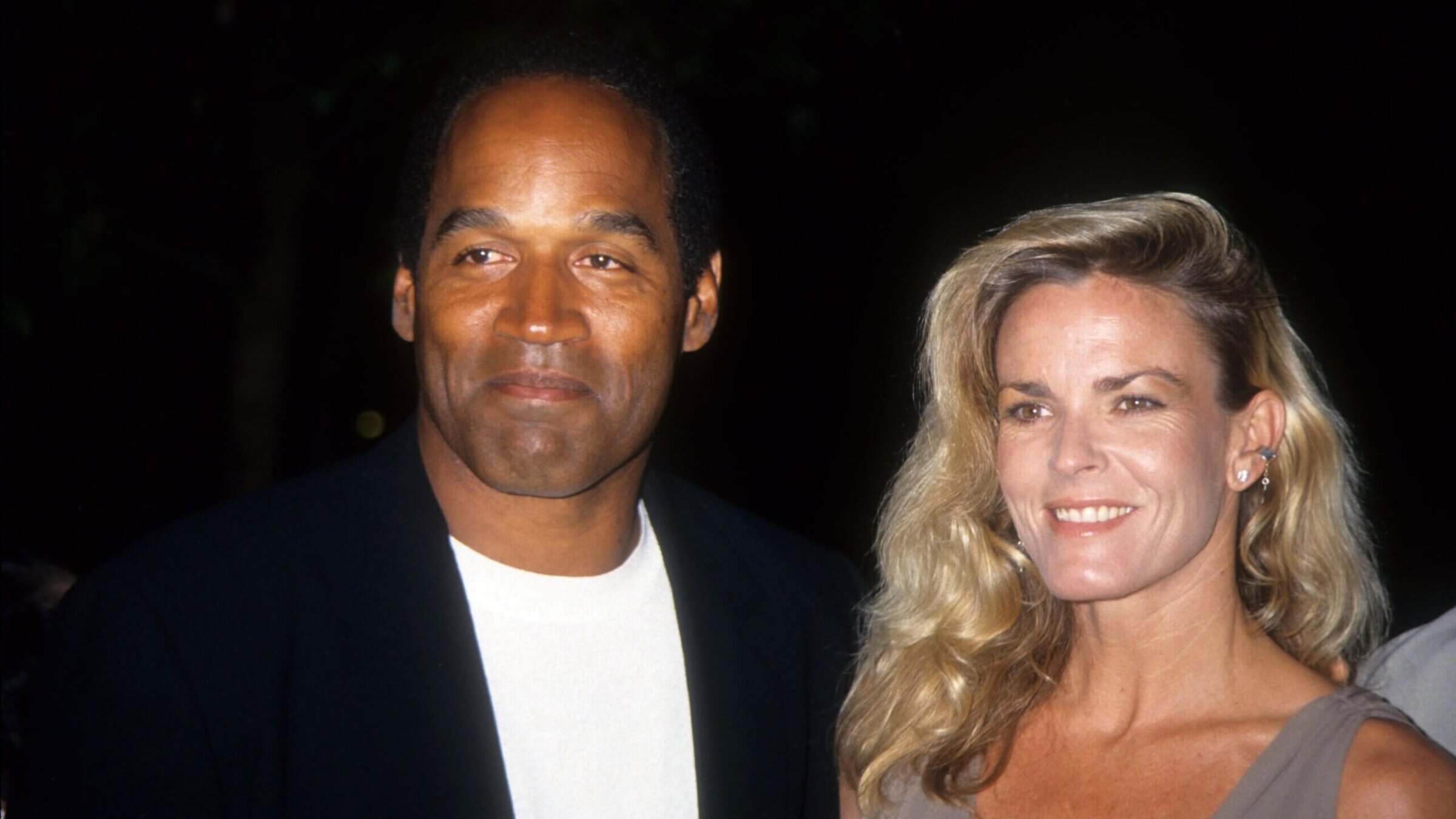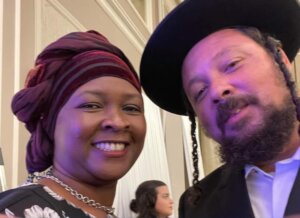Jewish teen who knew OJ: A family tragedy, not about race
Family friends were long aware of trouble in Simpson’s marriage.

O.J. Simpson and Nicole Brown Simpson pose at the premiere of the “Naked Gun 33 1/3: The Final Insult” in which O.J. starred, March 16, 1994 in Los Angeles. Photo by Vinnie Zufante/Getty Images
With the body of O.J. Simpson slated for cremation in the next few days, there are countless calls for him to burn — in hell.
And there are prayers from an equally outspoken multitude for him to rest in peace.
Aryeh Shmuel isn’t part of either camp, and it’s not only because his Orthodox Judaism is vague about the existence of an afterlife. It’s because he knew Simpson and Nicole Brown Simpson, who the football star was acquitted of killing along with her friend Ron Goldman, though later held civilly liable for their deaths.
“My older cousin became friends with O.J. as adults,” Shmuel, now 52, told me from his home in Arizona. “We went to barbecues at his house and he went to them at our house and at my cousin’s house.”
Shmuel was raised among middle class residents of Altadena, California, in a family with African American, Ethiopian and Ashkenazi roots, and became more Jewishly observant as an adult. His father was a stuntman and his sister, Peaches Jones, was one of Hollywood’s first successful Black stuntwomen, appearing in numerous films.
“When I used to see them at parties and stuff, I was 16, 17, 18 years old,” he said of his contact with the Simpsons, careful not to overstate his knowledge. “I was hanging out with friends that were more my age. We heard our parents talking about what was going on.”
What was going on seemed like trouble in the Simpson marriage, he said.
“It was apparent to everybody that their relationship was very volatile,” Shmuel told me. “He was a bigger-than-life character, very jealous but very lovable; that was part of his persona. She was kind of like gasoline and he was like fire.”

He made it clear that he does not blame Brown Simpson for the abuse she endured, calling her a “wonderful person.”
Shmuel’s recollections largely mirror those of others who knew the Simpsons. He said his family was not surprised when Brown Simpson and Goldman were murdered on June 12, 1994, and made clear they believed O.J. was responsible.
“The only thing we were surprised about is that it took so long,” he said.
During Simpson’s murder trial, Shmuel said, he was struck by how public opinion seemed to break along racial lines.
After initial disbelief that Simpson, the beloved Heisman Trophy winner, NFL Hall of Famer and TV pitchman could have done such a thing, “white people who loved him hated him,” Shmuel said, with some angry that “a Black man would get away with it.”
At the same time, he said, “there were a lot of Black people who didn’t want to believe” Simpson was guilty “because it looked like white people were trying to frame him.” Others, Shmuel said, viewed Simpson’s acquittal by a mostly Black jury as payback for countless Black people who were wrongly convicted of crimes or suffered the horror of extrajudicial lynchings.
That carries on to the present day, with the dueling posts of “R.I.P.”/”Burn in hell” lighting up social media at Simpson’s death at 76 due to cancer on April 10.
Shmuel said his own view was that Simpson “probably did it because we had seen a lot of the stuff between them,” but said this “was not from a racial perspective — just a relationships perspective.”
More broadly, he rejects the idea of race as anything more than a social construct.
“As a Jew and as someone against racism, the concept of race doesn’t actually exist,” Shmuel said. “It was invented with a specific purpose in mind.”
He noted that Eldridge Cleaver, the Black Panther leader, was married to one of his aunts, and said that Cleaver “gave me an interesting perspective” on race. As did O.J.
“He always pushed back about race,” Shmuel said of Simpson. “Reporters would ask him ‘How do you feel as a Black man about this or that?’ He would push back: ‘How do I feel as a man?’ That’s when he would say ‘I’m not Black, I’m O.J.’ A lot of people criticized him for that but I thought that he was ahead of his time in a way. That was a message a lot of people needed to hear.”
So does he subscribe to rest in peace or burn in hell?
Offering a Jewish theological view of the afterlife, Shmuel answered: “There’s justice, but the idea is to fix you, not to burn you forever.”
As for what happened in this world on June 12, 1994, he said: “I hope that people stop seeing it as a racial issue and see it as a family tragedy.”





















